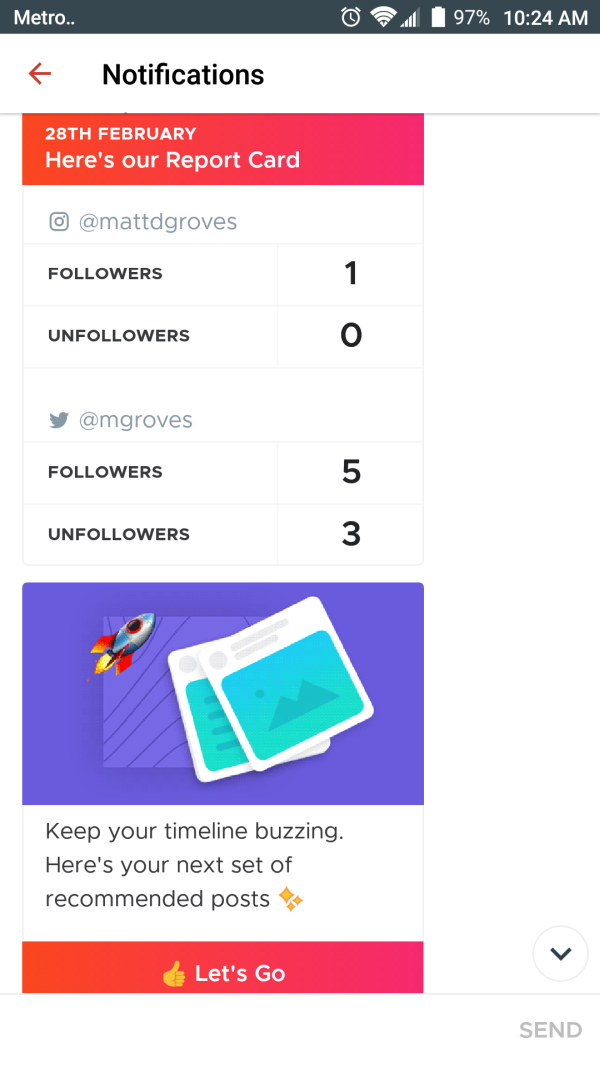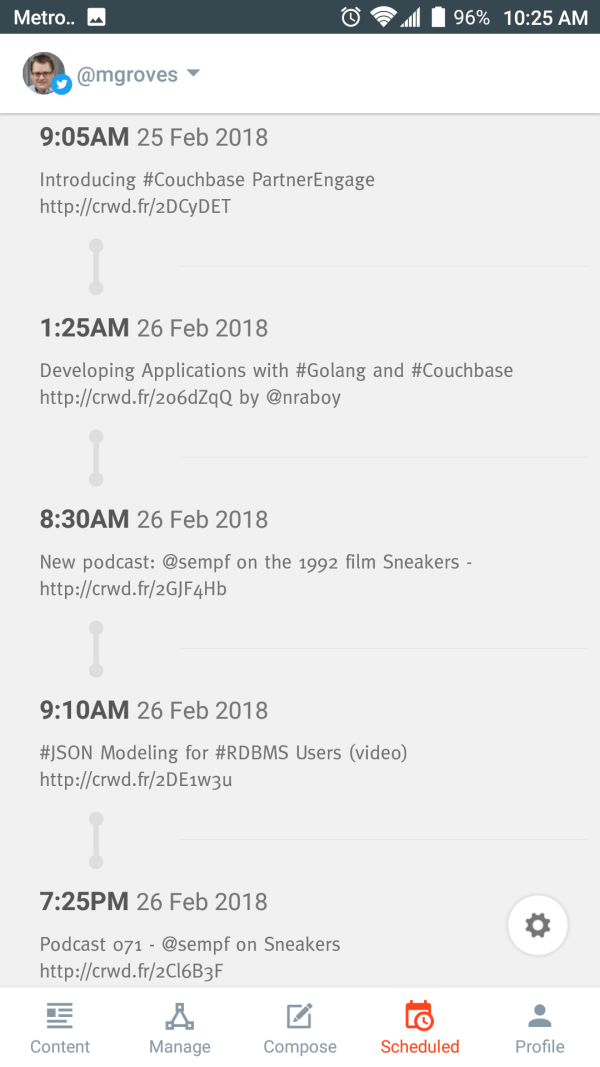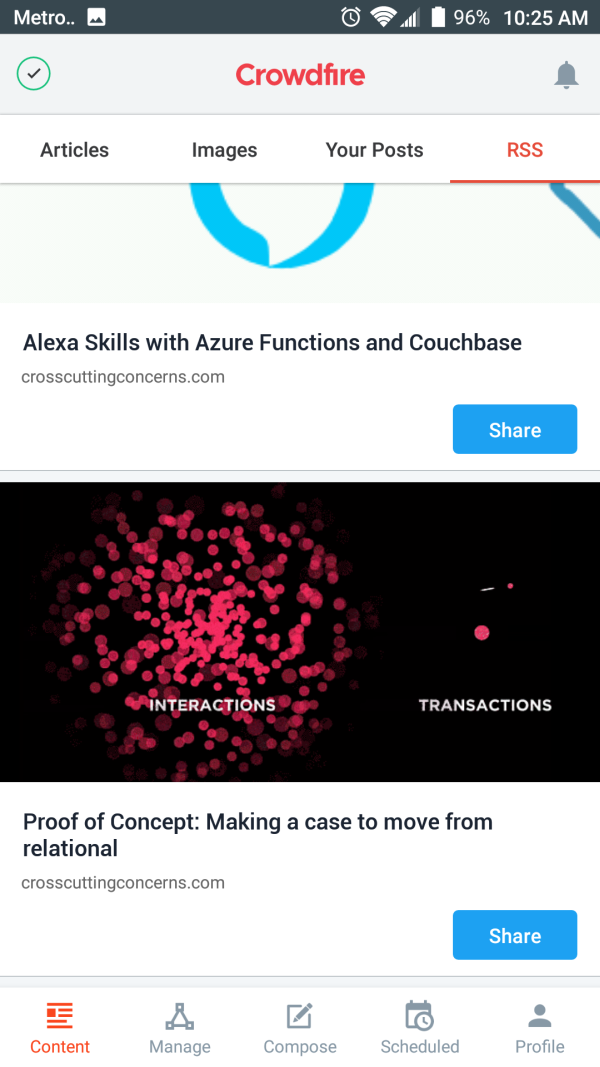Posts tagged with 'person'
I just published the 100th episode of the Cross Cutting Concerns podcast. It’s an arbitrary milestone, but it’s as good as chance as any to reflect on my podcast and what I’ve learned.
Guests
The whole reason I started this podcast was as an exercise in meeting people, having conversations, learning, networking, and making new friends. I work from home, and therefore I need to be more proactive in reaching out to the technical community.
If you’re a regular listener, then you know that I tend to draw from the Microsoft community pretty heavily: MVPs and other people that I’ve worked with. However, it’s never been my intention to focus solely on Microsoft technologies. To that end, I’ve been able to reach out and record episodes with people who are way outside of my normal sphere. Some examples:
-
Sophie Wilson (Episode 12: Sophie Wilson on Acorn, ARM, BASIC). Early on, I was "shooting for the moon", trying to contact as many legendary developers and technologists in the off chance that one of them would actually agree to talk to me. To my great surprise, one of my most influential technologists in history agreed to speak to me on the phone.
-
Kelsey Hightower (Episode 11: Kelsey Hightower on Kubernetes Bootstrapping. Not quite the same level as Sophie Wilson, but another shoot-for-the-moon guest. One of the most influential people in technology today.
-
Matthew Revell (Episode 40: Matthew Revell on Developer Conferences. Matthew is an expert in developer relations and I was very fortunate to have him on a show (and meet him later in person just this year).
Favorite Episodes
(Almost) every episode that I’ve recorded has been a great experience for me, so it’s hard to narrow down which ones I’ve enjoyed the most.
-
Retro gaming: I’ve done a "trilogy" of episodes with Matthew Bok about retro gaming: Episode 16: Matt Bok on Retro Gaming Tech, Episode 26: Matt Bok on Retro Gaming Tech Again, and Matthew Bok on Holiday Shopping for Gamers. Bok and I used to work together, we hang out sometimes, and we could just talk all day about retro gaming. So I enjoyed these episodes.
-
ForeverScape: TV shows often go through something called Early Installment Weirdness. This episode with Vance Feldman (who I’ve never met) was about some delightfully weird art called ForeverScape and some of the technology challenges around it. Episode 5: Vance Feldman on ForeverScape. I don’t think I’ve done any other episode like it since.
-
Movies: I’ve done two "movie" episodes now. One was with my dad: Episode 36: Kevin Groves on Pirates of Silicon Valley and the other was with one of my earliest mentors: Episode 71: Bill Sempf on Sneakers. Both of these episodes are extra-long and format breaking. We discuss movies and the technology represented within. These were both super fun for me to record, edit, and produce.
Inspirational
I owe a great deal to David Giard for this podcast. His show Technology & Friends is pretty much the template for Cross Cutting Concerns. He has been a guest on the show three times:
David is up to 500+ episodes of his own show (at the time I’m publishing this), so I have a lot of catching up to do!
Other inspirations include Pete Shearer (who has been a guest, and has his own show Pete on Software) and Russ Roberts (of the EconTalk podcast).
Popular Episodes
I started tracking my downloads (properly) only this year, so I don’t have a complete picture of the most popular episodes. But here’s a rough idea in no particular order:
Thank you
Thank you, listener, for subscribing to the show and listening faithfully.
Huge thanks to my very first sponsor: Smartsheet. They have a unique offering for project management that you should definitely check out. There’s a free trial, even!
Also thank you Microsoft, for the MVP Award. Thanks TechSmith for making the best video editing software, Camtasia.
Extra thanks to Joe Ferg for the awesome music. Definitely check out his other stuff at JoeFerg.com, and hire him for all your creative needs!
Retrospective
Season 3 is coming to a close soon, so it’s a good time to reflect on what I think has gone well, what hasn’t gone as well as I’d like, and what I’m going to do next season.
What I think has gone well:
-
Cadence: once a week episodes has been tough at times, but since my episodes are short, I’m able to keep up.
-
Guests: just about every guest has exceeded my expectations, and I learn something new at least once per episode.
-
Metrics: I’ve been using Podtrac to track the number of downloads. It’s a tool that could use some improvements, but it was so easy to get started, and has been very reliable for me.
What hasn’t gone as well as I’d like:
-
Audience engagement. I want to hear from you, the listener, more. I’ve tried to make the JavaScript game a quick and easy way for listeners to contribute to the show. I’ve also had some giveaways this season. But my inbox is not exactly bursting at the seams, and I haven’t received any reviews on iTunes. This is all despite having upwards of 1200-1500 episode downloads per month. So I’m assuming that I’m doing something wrong.
-
Transcripts. I’ve tried a couple tools to automatically generate transcripts from the recordings. None of them seem accurate enough to be useful.
What I’m going to do next season:
-
Try to find a sponsor. Smartsheet has been great, and hopefully they renew with me. If not, I’d like to find another sponsor. (Even if I don’t, the show will go on).
-
Change up the JavaScript game. I may increase the prize amount, I may change the game so it’s not just about JavaScript, I may remove the game entirely. I haven’t decided yet.
-
Increase engagement with you, somehow. I’d ask you for suggestions, but… I ask for them every episode already. I should do something different.
-
Reach out to a wider diversity of topics. I did a little bit of that this year with ColdFusion, embedded development, and COBOL. I learn the most from the episodes, so I want to do more.
Something's been weighing on my conscience this weekend, and I needed to write about it. It's probably not as big of deal as I'm making it out to be, but nevertheless...
I don't consider myself to be an A-list conference speaker. Far from it, probably. But, I enjoy speaking, meeting people, teaching, helping answer queestions, learning, coding, and so on. It's my job, really, and I think I generally do a pretty good job at it.
While I'm not the most famous speaker, best developer, or expertiest technologist, I do pride myself on one thing: I show up. If I say I'm going to be at a conference, I will be there. If I say I'm going to stand at a booth and answer questions, I'll stand at that booth and answer questions. If I say I'm going to be at a meeting, I'll be there. Sometimes to a fault (just ask my wife).
Woody Allen is not exactly at the top of my list of wise men, but he once said "Showing up is eighty percent of life". I believe this; I was raised this way. Pete Rose was far from the most talented baseball player. In terms of career OPS, he's not even in the top 500. Yet, he'll go down in history as one of the best hitters in baseball. Why? Because he showed up. He's #1 all time in games played. So, I treat every conference, every user group, like Pete Rose would treat every at bat. I don't care if there are 7 people in the audience or 700.
So this is what's weighing on my conscience. Due to some travel difficulties, I was unable to make it to the recent Beer City Code conference in Grand Rapids, Michigan. I had to send a last minute "sorry, I can't make it" email to J. Tower (two-time guest on my podcast). J. Tower was very gracious and thanked me for letting him know. But it still bothers me. I can't remember the last conference I had to cancel out on as a speaker, and especially not the day before. And now that's it over, I think: well, what if I had made one more call, or tried one more rental car place, or what if what if what if. How could I have planned better? And, even worse, I think: what if this conference, my session would have inspired just one person to get excited about the technology I was going to present on? What if Michael Kramer hadn't shown up a conference all those years ago to talk about AOP? What if Jeff Blankenburg and others hadn't shown up to run CONDG when I was first attending? What if Alan Stevens hadn't shown up to deliver Coding in Public, which had such an impact on me?
There's not much I can really do about it now, except apologize. I'm sorry, Beer City Code, for not being there this time.
The fact is that the conference got along just fine without me, due to the hard work and dedication of the organizers and the slate of excellent speakers who did make it. So, please don't think I'm overestimating my importance. I know that I was only a tiny part of the overall experience. But knowing how hard the organizers and other speakers worked, I owe an apology, plain and simple.
Thanks for reading this!
As a small token, I wanted to (again) share my own hand-drawn version of the Beer City Code logo. Whenever I present at a conference or user group, I like to draw a version or variation of the logo, to give my slides a bit of a personal touch. I usually add a little personal tweak, like a baseball logo or some other nerdy thing. But in this case, I didn't. It's a really satisfying logo that I really like, second only (maybe) to the Azure Functions logo.
I’ve been using Crowdfire social media management tool on Android for a few months now, and I’ve been a paying customer for a while. So, I think it’s time to share my thoughts on it, and why you might want to give it a shot.
Disclaimer: a small promotional consideration was paid by Crowdfire for this post. But I probably would have written it anyway.
I work as a developer advocate, and a significant portion of that is using social media to promote, engage, build a follower base, etc. However, I have some problems:
-
I’m forgetful: I need to remember to help promote posts of my friends and coworkers
-
Scheduling: I’ve used Twuffer in the past (and I still occasionally do), but I’d like an easier way to schedule tweets on my phone.
-
Tracking: I’d like to track how my follower count is doing, and how well I’m sending out promotional tweets.
-
I don’t want my Twitter feed to only be a shill-broadcast of self-promotion. I use IFTTT for certain things, but I want to have some degree of control over what I post, the hashtags I use, the phrasing, etc.
There are a lot of tools out there for doing this, but many of them don’t solve all these problems (especially the last one).
I don’t remember where or how I found Crowdfire, but it’s now something that I use every day. Literally it’s one of the first things I do when I wake up in the morning.
It has a lot of capabilities, I’m only going to cover a few in this post.
What Crowdfire is not
It’s not a replacement for my Twitter client of choice. I still use the Twitter app to do all my reading and a bunch of my tweeting. If I turned over complete control of my Twitter/Facebook/etc account to an app like Crowdfire, IFTTT, etc, then I think I’d be missing the point of social media. I want to be a real person that people can talk to and not just an automated feed of links.
Daily Notification and "prescriptions"
Whenever a new post hits the Couchbase blog, I get a notification and prompt to share the post (whether I wrote the post or not). I also get a report every morning showing the number of followers and unfollowers since yesterday. This provides me daily feedback on whether I’m getting too annoying on social media or not. Also, when I share a post on Crowdfire, it will automatically schedule to tweet them up to 4 times over a 30 day period at the "best time" of day. I’m not sure how they calculate this, but it spaces out my tweets nicely, and I’ve found that repetition of tweets leads to more people seeing them and tweeting with me than before I used Crowdfire.

Scheduling
As I mentioned above, not only will Crowdfire remind me to tweet, it will also schedule tweets. Everyone uses Twitter at different times, so it’s helpful to send out multiple tweets (but not too many) to reach everyone that I can. In addition, I can manually schedule tweets. I find this helpful when promoting new podcast episodes.

RSS Feeds
One feature that Crowdfire has introduced after I started using it, is the ability to connect to any RSS feed. Previously I was limited to just WordPress or other well-known engines. But now I can use Crowdfire with my own site’s RSS feed. This way I can track which posts I’ve promoted on Twitter and which ones I haven’t.

Recommended sharing and following
I’ve given Crowdfire some keywords that I find most relevant. It will then recommend people to follow or articles to tweet that are relevant to me. To me, Twitter isn’t just about getting a bunch of followers, but it’s about doing a lot of following.

I usually find this helpful, but this is probably the area where I think Crowdfire could most improve. I get a few suggestions of people who don’t tweet in English, and articles that I’m not interested in, for instance.
Summary
Give Crowdfire a shot. They have a free version, which has some limits, but it’s absolutely enough to evaluate the tool and see if you find it useful. Crowdfire is in the Google Play store.
Jyotsna Raghuraman talks about her unconventional entry into software, and overcoming her fears.
Note that this was recording at the Indy.Code() conference in a hallway, so the audio may be a bit noisier than usual. At one point there was a loud buzzer from a freight elevator.
Show Notes:
- Check out Jyotsna's blog posts on SEP
- You can contact her at the email address given out in the show's audio
Jyotsna Raghuraman is on Twitter.
Want to be on the next episode? You can! All you need is the willingness to talk about something technical.
Theme music is "Crosscutting Concerns" by The Dirty Truckers, check out their music on Amazon or iTunes.
Jesse Riley is thinking about giving it all up and becoming a farmer.
Show Notes:
- Jesse Riley's blog post on The Farmer Effect
- Book: Zero to One
- Book: Brain Rules
- Book: Daring Greatly
- I don't think this made it into the recording, but we also discussed Oblique Strategies cards
- Mike Rowe's podcast: The Way I Heard It
- Video: the end of Office Space (movie) where Peter eschews computer programming for road work (this video is likely to get taken down, but here's a link, language may be NSFW)
- Video: Leap Motion
- Video: the famous "it's a unix system" clip from Jurassic Park
Want to be on the next episode? You can! All you need is the willingness to talk about something technical.
Theme music is "Crosscutting Concerns" by The Dirty Truckers, check out their music on Amazon or iTunes.


